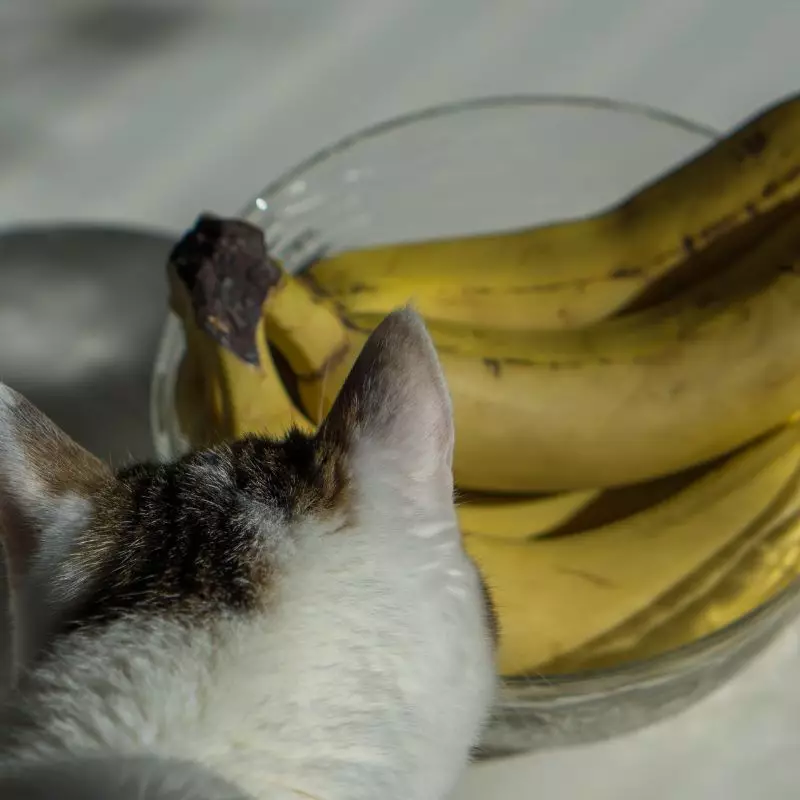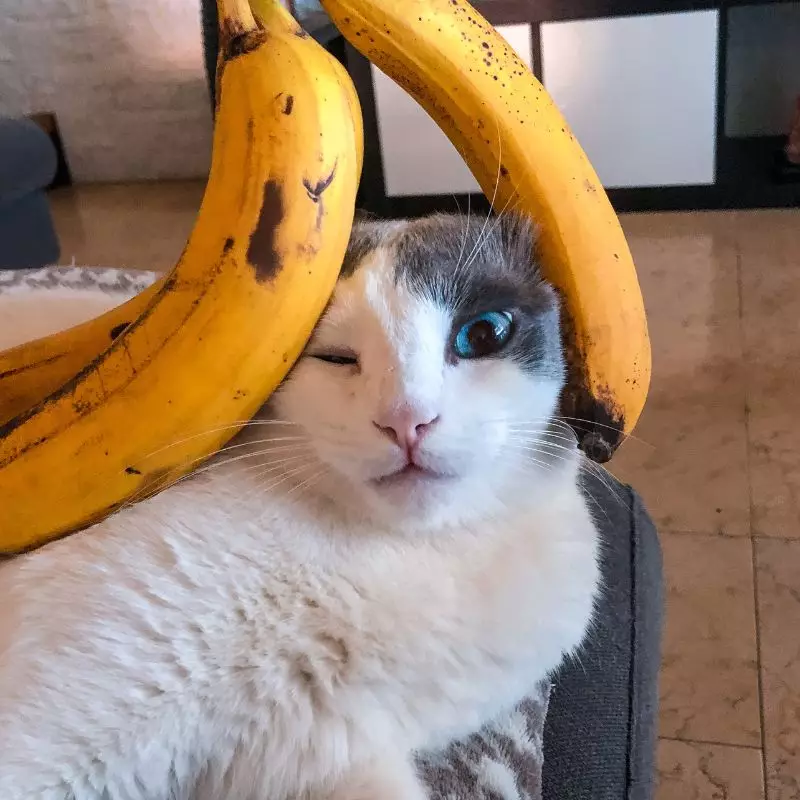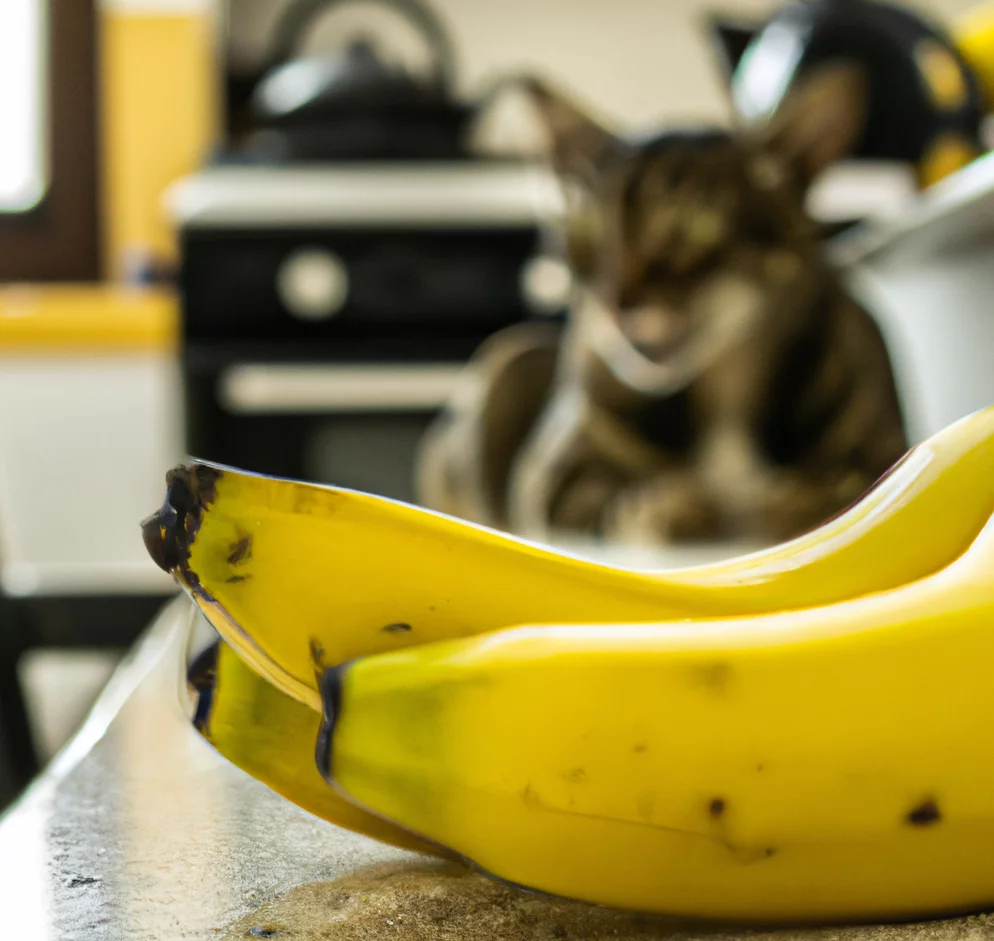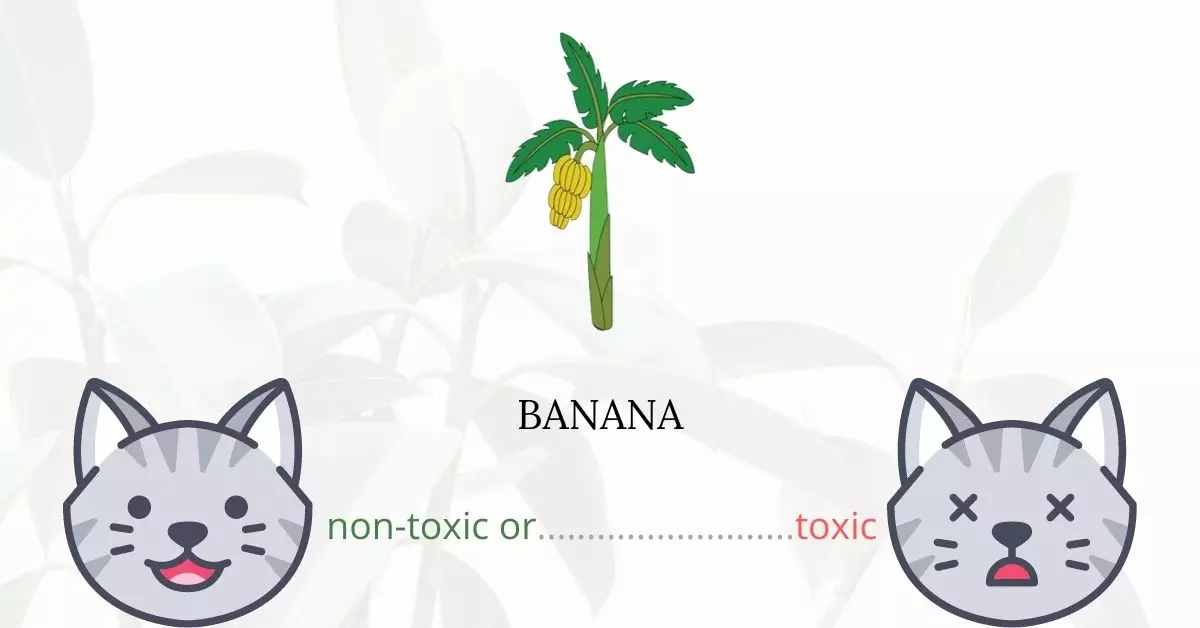Bananas are not inherently toxic for cats, providing a clear and succinct response to any concerns pet owners might have regarding their feline companions consuming this fruit. This information is corroborated by the American Society for the Prevention of Cruelty to Animals (ASPCA), as well as affirmed for other animals such as dogs and horses.
This article is the product of collaborative efforts with a team of experienced Doctors of Veterinary Medicine (DVMs), whose invaluable insights allow us to furnish accurate and current information regarding the potential risks various plants, including bananas in this context, may pose to cats. The synthesis of knowledge presented herein also draws from extensive research conducted on high-authority websites like ASPCA and PetMD, ensuring that every piece of information is backed by credible sources and is in alignment with the latest veterinary guidelines and studies. Although bananas are deemed safe, is it recommended to include them in a cat’s daily diet? Continue reading to learn more about the intricacies of cats’ dietary needs and how bananas fit into the equation.
Can Cats Eat Banana?

Yes, cats can eat bananas. However, bananas are only considered a safe, infrequent treat for healthy cats. If your cat suffers from a medical issue (such as diabetes), avoid giving them bananas.
Bananas may be also difficult for cats to digest. Since they are carnivores, their bodies lack enzymes that can completely process a plant material in their stomachs.
Bananas are abundant in vitamins and minerals, but they are not good for a cat’s digestive system. Although a small amount will not endanger your cat, eating too many bananas may cause GI issues such as constipation.
A cat’s nutritional requirements should be complemented with more appropriate cat food. Fruits, vegetables, and grains are not necessary for a cat’s balanced diet.
It is important to know that not all cats are the same. Some cats may ingest a certain food item without problem, whereas another cat may consume the same thing and develop vomiting, diarrhea, or other negative symptoms.
What is a Banana?

Banana plant is a Musa species from the Musaceae plant family. Although they may reach the heights of trees, banana and plantain plants are not wooden, and their visible “stem” is formed up of the bases of the massive leaf stalks. Therefore, bananas are technically enormous herbaceous plants.
Some Musa species like M. Basjoo Sieb. & Zucc. endemic to Japan and M. ornata Roxb., native from Pakistan and Burma, are grown only as ornamental plants or for fiber. M. textilis Nee which is commonly found in the Philippines is grown only for its fiber, prized for strong ropes as well as tissue-thin tea bags. The so-called Abyssinian banana, Ensete ventricosum Cheesman, formerly E. edule Horan, Musa ensete Gmel., is grown in Ethiopia for fiber and staple foods derived from the young shoot, stem base, and corm.
Keeping Cats Away From Banana

Keeping your cats away from your plants will not only protect them but will also safeguard your plant from possible damages that your cat can do to your plant. Restricting your cat’s outside activities will keep them safe from potentially toxic and harmful plants.
Keep your cats engaged and mentally stimulated indoors to reduce the likelihood of their straying.
Plants to Avoid For Your Cats
If you are a cat owner and unsure if the plants growing in your yard are harmful to your cats, check out this list of toxic plants for cats. You can also check our list of non-toxic plants for cats.





